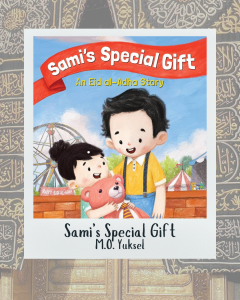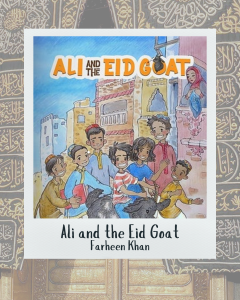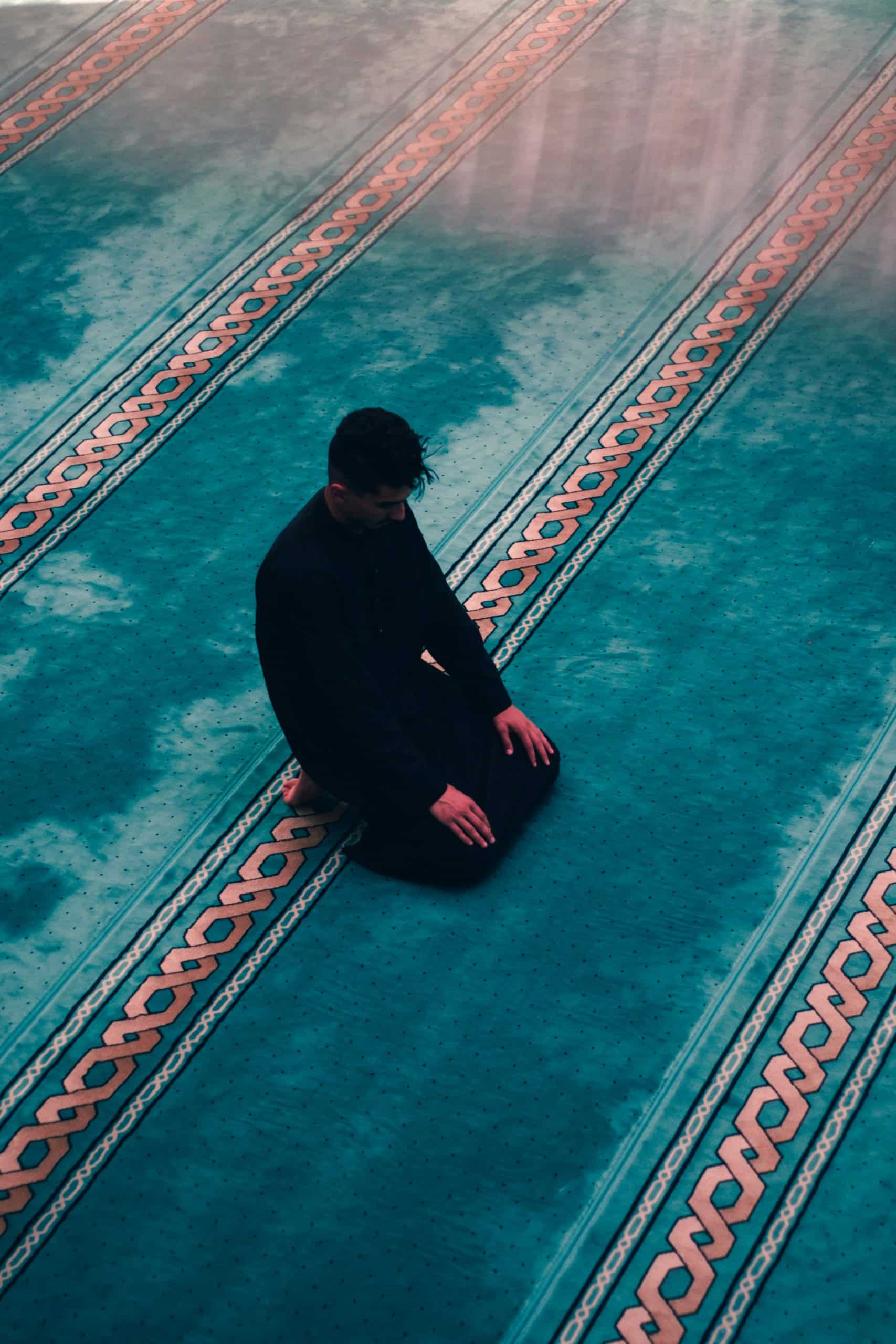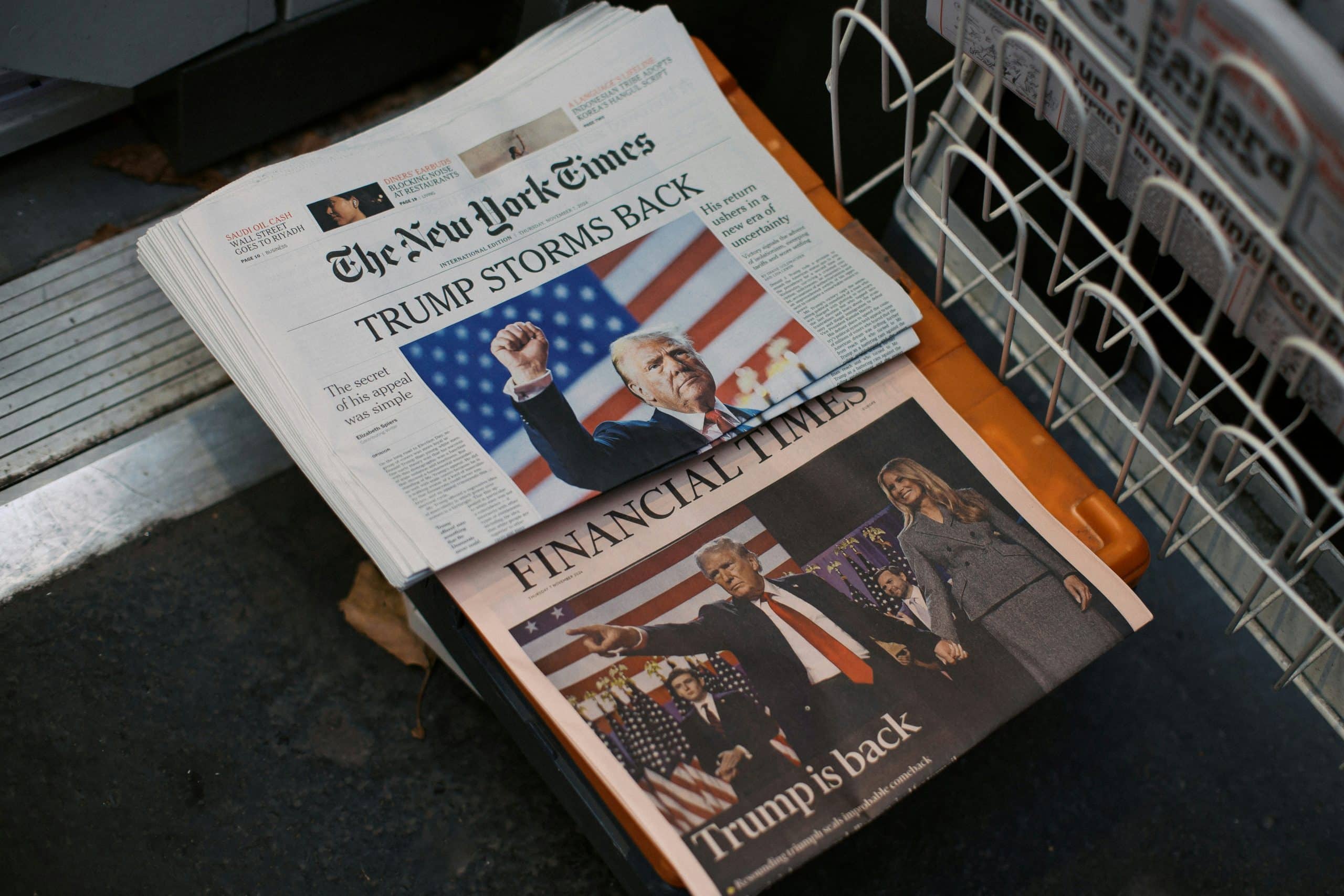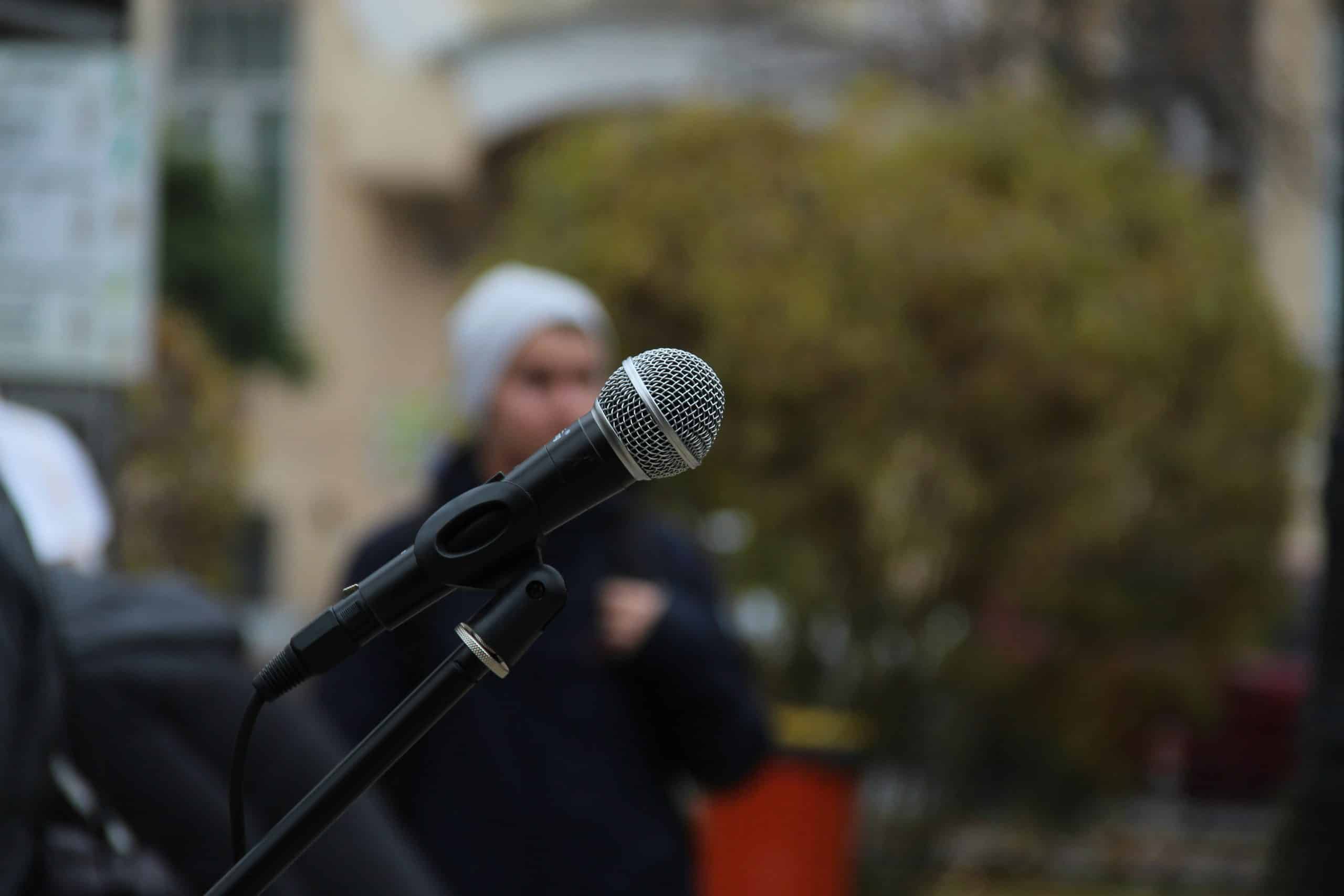Cryptocurrency is Deek’s last chance to succeed in life, and he will not stop, no matter what.
Previous Chapters: Part 1 | Part 2 | Part 3 | Part 4
Anas bin Malik reported: The Messenger of Allah, peace and blessings be upon him, said, “If the son of Adam had a valley full of gold, he would want to have two valleys. Nothing fills his mouth but the dust of the grave, yet Allah will relent to whoever repents to Him.”
– Sahih al-Bukhari 6439, Sahih Muslim 1048
Pride
“Are you okay?” Deek asked.
Rania, still sitting on the cement of the driveway with legs splayed, waved a weak hand. “It’s a shock.”
“Okay. Well.” Deek stood. “I’m going.”
“You’re leaving me?”
“I’m leaving. Not leaving you necessarily. It’s not the money. You shouted at me in front of your co-workers. And just now, you called me an anchor around your neck. In front of our daughter. I’m not here to be treated like that. You can think what you like, that I’m a deadbeat, ugly, or whatever, I don’t care, but I have my pride. Plus, now you’ve got this guy at work.” He held up a hand, forestalling her objections. “I believe that you’re not cheating with him. But you are giving him the attention and respect you used to give me. That’s just as bad.”
“I never said you were ugly. Never.”
Deek let out a bitter laugh. She’d let the “deadbeat” remark slide.
There was another reason he didn’t want to admit. He was so ashamed about making a mess on himself and in the car that he just wanted to get away and hide. Even though no one knew, he knew, and it was mortifying.
Rania looked away. The muscles in her neck tensed. “I want half the money.”
“You can have it.” Though in reality, he had no intention of telling her just how much he had made. “And I will pay the university fees for the girls, wherever they wish to attend. And all the bills.” He went around her and opened the driver’s door.
“Wait!” She stood and followed him and tried to take one of his hands, but he pulled away.
“I haven’t been nice,” she pleaded. “I admit it. But that’s a tiny window in a twenty-year marriage. We have passed through storms and thunder. Don’t throw that away. And I never thought that you were ugly. You have always been handsome to me.”
“You’re saying this because I made money.”
“No! I’m saying it because I love you.”
“You humiliated me.”
“Deek!” Rania raised her hands as if in dua’. “I’m sorry! I was frustrated and worried about our financial situation. This pride of yours is a shaytan inside you. Everything’s always about your honor. What about love?”
Drown Myself
Deek tried to open the car door to get in, but Rania was standing too close.
“At least tell me where you’ll be.”
“Maybe I’ll go drown myself in the river.” As soon as these words escaped his mouth, he regretted it. He’d said it only to hurt and scare her. It was a rotten thing to do.
“I’m sorry,” he apologized. “That was stupid, I didn’t mean it. I do love you and the girls.”
“No, you don’t, because love and forgiveness are a married couple, they walk hand in hand. True love cannot exist without forgiveness.”
There were tears on her cheeks. Deek was embarrassed. He had not seen Rania cry in a long time. It hurt him to see her in pain.
“I can’t trust this sudden remorse and talk about love. It’s just because I made money. You rolled up here a half hour ago, putting me down and talking to me like a rotten child. It’s not me you suddenly respect. It’s the money.” He spat this last word like a curse, then waved his hand in dismissal. “I need to think.”
Also, he wanted to get away before Rania smelled the car and deduced the truth. She knew him well, and knew that he sometimes had trouble with his bowels. He felt desperate to get away. Cutting off the conversation, he managed to squeeze into the car and close the door. He started the car and backed out. The last thing he saw before driving away was Rania standing in the driveway, hands at her sides, looking defeated.
Nowhere To Go

“Lubna had her husband, five kids, two cats, and a turtle.”
He was hardly two blocks down the street before he realized that he had nowhere to go. His only relative in this city was his younger sister, Lubna. She had her husband, five kids, two cats, and a turtle in a small house, and wouldn’t appreciate Deek sleeping on the sofa. Anyway, he and she had never gotten along, and it had only gotten worse since Deek started working on the cryptos. Lubna had spoken to him with contempt, saying that he was destroying his life and dragging his family to the poorhouse.
He had no cash for a hotel. He didn’t want to spend any of the money he’d deposited in the joint account. That was for Rania. He took out his phone and checked his own personal bank account. Two hundred and twelve dollars. He could sell some crypto and initiate a transfer, but the money wouldn’t show up in his account until late tomorrow or the morning after.
He considered calling Zaid Karim, but Zaid wasn’t exactly a friend. More like an indirect relative that Deek admired and respected. Besides, the man had a wife and two daughters. They wouldn’t appreciate having Deek camped out in their living room.
That left Marco, his only real friend. Deek had sometimes wondered if the only reason he and Marco were friends was because Marco was even more hapless than himself, which allowed Deek to feel like a Zen master dispensing wise but mystifying advice. Marco, remember: man who butters bread on both sides will always have slippery hands.
They’d seen each other a lot less in the last five years, as Deek had been immersed in the crypto world, barely paying attention to his own family, let alone his friends.
A Hollow Statue
He bought a spray bottle of all-purpose cleaner and wiped down the car seat. Then he threw the dirty t-shirt and towel in the trash. At a liquor store he picked up a bag of wavy chips and a large diet soda, then sat in the car with the windows down, snacking. Halfway through the bag of chips, he realized that he wasn’t enjoying them, and stuffed the bag under the seat.
He didn’t know where to go or what to do. He wondered if Rania had recovered from the shock. She would be picking up Amira from school about now. Amira had a deadpan sense of humor, and Deek liked to joke with her. She would often reply with nothing more than, “Uh-huh,” but sometimes Deek could see the trace of a smile on her face. It was strange to think that he probably would not see her for a while.
Clouds were sweeping in from the west, bringing with them the smell of ozone. A seagull landed atop a nearby car. It would rain tonight. Deek sat in his car in a mini-mall parking lot, feeling like a hollow ceramic garden statue, inanimate, without purpose or will. He would sit here, and night would come, and the car would be rained on. All around him, people would talk, laugh, eat together, and love each other, but Deek would sit in this beautiful car and do nothing. He might be the richest man in Fresno, yet his inner life was as chaotic as the coming storm, while his outer reality was an empty parking lot.
 At some point he fell asleep, and awoke when fat drops of cold water began to fall on the windshield. He looked up to see that the sun had set. The rain thickened, then became an assault, beating on the windshield as if wanting to break in and drown Deek, to punish him for his temerity in thinking that he could be rich and happy at the same time.
At some point he fell asleep, and awoke when fat drops of cold water began to fall on the windshield. He looked up to see that the sun had set. The rain thickened, then became an assault, beating on the windshield as if wanting to break in and drown Deek, to punish him for his temerity in thinking that he could be rich and happy at the same time.
At least he had the car. It was small but exquisitely crafted and powerful. It could go over two hundred miles per hour, the boy had said. If only Deek had somewhere to go.
Marco
His phone rang. It was Marco. Surprised and happy, Deek answered with, “As-salamu alaykum my man Marco! I was just thinking about you.”
“Because you need a place to crash?” Marco had a voice as soft and calm as duck feathers, and a watered-down New York accent. He’d actually grown up in California, but his parents had both been Puerto Ricans from New York, and somehow he’d inherited the lilt. He was in his 40s but looked twenty-five, with lustrous black hair and classically Spanish features.
Marco had been an on-again, off-again university science student for two decades. He was an expert in physics, chemistry, and biology, but had never finished a degree. He played a mean soccer game, blew the trumpet, and played chess like a Russian. Yet his life seemed to be a series of collapsing opportunities, like a downhill skier crashing into the slalom markers at every turn, with an avalanche close behind him.
“How did you know that?”
“Your wife called. Worried about you.”
“Oh.” It made him feel good to know that Rania was concerned, partly because it meant she cared about him, and partly because he wanted her to feel bad.
Marco raised his voice: “I can barely hear you.”
“I’m in my car, and it’s raining.”
“So you really are homeless. Listen bro, you’re welcome to my sofa. Might catch problems, but I’ll deal with it.”
“Problems, why?”
“I’m in an SRO paid by the city. No overnight visitors. If they find out, they could evict me. Who cares, you’re my best friend. Come over, I’ll make quesadillas on the iron.”
Marco was in a single room occupancy hotel? Those places were death traps. Most of them had no kitchens in the rooms, so residents used hot plates or propane stoves, or apparently in Marcos’s case, an iron, and sometimes burned the place down. They were flea-ridden, rat-infested, and crumbling. Or at least that was the word. Deek had never actually been inside one.
The Moon Walk
“What happened to your studio?” Deek asked.
“Lost my job. Had to give it up.”
“I didn’t know.” Not that he was surprised. Marco had worked a huge variety of menial jobs, including fry cook, fruit picker, gardener, salesman, the occasional retail job, a stint in an orange packing plant, and rideshare driver.
Deek felt guilty now for not reaching out to his friend over the last few years. He’d been so deeply into the cryptos, he’d forgotten everything else.
“Yeah,” Marco said. “I was clerking at a psychology office. I’d type the psychiatrist’s notes, so I knew everything about the patients. There was this young man with a porn addiction. I stopped him one day and told him to punch a wall instead. He followed my advice. Broke his hands, which limited his porn activities, if you get me. But my boss didn’t appreciate it.”
Deek laughed. “So what are you doing for money?”
“I won the California State chess championship.”
“Wow! How much does that pay?”
“Three thousand.”
“That’s a decent amount.”
“I guess. So you coming over?”
“No… I wouldn’t want to get you in trouble. I’ll just… I don’t know.”
“Dude… Is it bad? You guys having a big fight?”
Deek shrugged. “I’m not sure.”
“Why don’t you go to that cheap motel you stayed at last time?”
“What cheap motel?”
“Dude. You remember the names of a hundred cryptos, but you’d forget your heart if it wasn’t installed in your chest. Five years back, you guys had a blowout. You found that little motel on 99 and Ashlan. Cheap but clean. The Moon something…”
“Oh, right!” Deek slapped the car’s dashboard. “The Moon Walk Motel. I forgot all about that. I remember I took it as a sign that I’d succeed with the cryptos.”
It was a good suggestion. The Moon Walk only charged $50 per night. He only needed to stay there until the money transfer cleared. He thanked Marco, ended the call, and started toward the Moon Walk.
Marco was a multi-talented man with a 24-karat heart of gold, living in a society that valued these qualities less than the ability to generate revenue by any means necessary. If he fell any further, he’d be homeless. Yet Deek knew that his rudderless friend would have taken him in, fed him, and never asked him to leave, even at risk to himself. Marco was a friend in fair weather and foul. Deek would not forget it.
The Moon Walk Motel
 The sky was the color of charcoal when Deek eased his Porsche off Highway 99 north of Fresno, and into the Moon Walk Motel’s gravel lot. The low, single-story block building sat squat against a backdrop of parched farmland. The pale green haven was a relic of the 1970s. Its neon sign, once proud, flickered heartedly as the word “MOON” sputtered in dusty white, while “WALK” lay dark and inert.
The sky was the color of charcoal when Deek eased his Porsche off Highway 99 north of Fresno, and into the Moon Walk Motel’s gravel lot. The low, single-story block building sat squat against a backdrop of parched farmland. The pale green haven was a relic of the 1970s. Its neon sign, once proud, flickered heartedly as the word “MOON” sputtered in dusty white, while “WALK” lay dark and inert.
Though the building was weathered, the office windows were spotless, and a pair of wicker chairs hinted at modest hospitality. Along the foundation, the owners had coaxed life from the scrubland: a tidy patch of lavender and rosemary, a hardy rose bush, even a small citrus tree that dangled half-ripe fruit like memories of golden times.
Of the 20 rooms, only four or five appeared occupied. Deek checked into room 9 and found it to be as he remembered: small but clean, smelling of laundered sheets, fresh towels, and soap. He set his suitcases beside the tiny closet and collapsed into the bed, which sagged and creaked beneath his weight.
Here, in this unremarkable hideout, he could relax, collect his thoughts, and plan next steps. No one would ever find him here.
Speak of the Afreet
Bandar Tzan’ani, the Yemeni liquor and smoke king of Fresno, sat brooding at the large antique demilune desk in his home office, located in a mansion within a large family compound in west Fresno. He filled his pipe and lit it, then drew the sweet smoke into his lungs and eased it out, closing his eyes in pleasure. His business operations were coming under heavy pressure from the city council. The network of stores that Tzan’ani and his sons and brothers operated were, according to the city, magnets for drug use and crime. To make matters worse, three of his shops – all run by his youngest son, Shujaa – were losing money, which didn’t make sense.
He wondered if coming to this country had been a mistake. In Yemen, people feared American, Saudi, and Israeli bombs, as well as famine. Here, people feared life itself. Any stranger was a potential predator, and the internet poisoned children’s minds. In Yemen, he had walked the streets freely. Here he lived in a gated compound behind a high wall, and did not feel safe. He’d traded a life of poverty, in which he was surrounded by family and friends and a culture he loved and understood, for great wealth and a life of stress and alienation.
At the sound of a knock on the door, Bandar called in Arabic, “Come.” Shujaa walked in. Speak of the afreet, and he appears. His son wore boots, stonewashed jeans, a black t-shirt that hugged his torso, and a knee-length denim trench coat. His hair was styled into a huge pile of curls atop his head, while shaved on the sides. The boy was either a homosexual, or imagined himself a celebrity. Hopefully the latter.
“Sit,” Bandar snapped.
Shujaa dropped sullenly into one of the chairs facing the desk.
“I noticed that your car is not in the compound.”
“Ah, hadhi,” the boy replied, speaking in Arabic like his father. He sunk a hand into his curls, scratching his head. “I loaned it to my friend Saleh to collect his mother from the airport.”
“No, you didn’t.” In fact, Bandar already knew what had happened, as one of his son’s friends had told him. He saw the boy’s eyes dart one way and another before a look of resignation came over him.
An Admission
“I sold it,” the boy admitted.
“For how much?”
“Two and a half Bitcoins.”
Bandar set his pipe down. He was so angry he could have choked the boy. “You sold your car for fake money?”
 “It’s real money,” Shujaa said hurriedly. “Or as good as. But…” He snapped his fingers as if he’d just had a brilliant idea, then leaned forward and struck the desk with the side of a fist. “The man tricked me! He said he would give me another two and a half Bitcoins after I signed the pink slip. That would have been two hundred and fifty thousand. But he grabbed the keys and drove away.”
“It’s real money,” Shujaa said hurriedly. “Or as good as. But…” He snapped his fingers as if he’d just had a brilliant idea, then leaned forward and struck the desk with the side of a fist. “The man tricked me! He said he would give me another two and a half Bitcoins after I signed the pink slip. That would have been two hundred and fifty thousand. But he grabbed the keys and drove away.”
Bandar sucked in a lungful of smoke, held it then belched it out like a fire breathing dragon. A murderous rage was growing inside him. His son might not be telling him the whole truth, but Bandar did believe that someone had taken advantage of the idiot boy. No one stole from his family and got away with it.
“I will ask you once, and do not lie. What are you doing with your money?”
Shujaa’s mouth worked soundlessly. His hands sank into his curls as if he wanted to pull his own head apart. Then he slumped in the chair and said, “I gamble.”
“That is haram!”
The boy laughed bitterly. “Everything we do is haram. I never wanted to be in this business.”
The father closed his eyes and shook his head slowly. “The fashion design thing again.”
“It’s what I love.”
GPS Tracker
Bandar sighed. “Listen to me carefully. Cut your hair and put on normal clothes. I have had enough. If you cannot behave, I will send you back to Yemen.” He waved a weary hand. “Get out.”
With the idiot gone, Bandar logged into the website of a subscription GPS tracking service called Safe Spot. He had installed an aftermarket GPS device in the Porsche, as he did with all his vehicles. A map came up showing the car’s exact location. Bandar typed the address into the browser. It was a motel called the Moon Walk.
He called Manny, his foreman at the warehouse. The man had been a violent criminal in the past, and Bandar occasionally relied on him for the rougher kinds of jobs. He gave Manny the address and told him to take a few guys with him. “The guy stole my son’s Porsche,” Bandar explained. “I want you to turn him into a bloody mess. And bring the car back.”
***
[Part 6 will be published next week inshaAllah]
Reader comments and constructive criticism are important to me, so please comment!
See the Story Index for Wael Abdelgawad’s other stories on this website.

Wael Abdelgawad’s novels – including Pieces of a Dream, The Repeaters and Zaid Karim Private Investigator – are available in ebook and print form on his author page at Amazon.com.
Related:
A Wish And A Cosmic Bird: A Play
What Is True, And What Matters: A Short Story
The post Moonshot [Part 5] – The Moon Walk Motel appeared first on MuslimMatters.org.
 reports that Allah’s Messenger
reports that Allah’s Messenger  said,
said, Forgiveness of the great sins of His servants.
Forgiveness of the great sins of His servants. , reported also that Allah’s Messenger
, reported also that Allah’s Messenger  said,
said,  is also reported to have said,
is also reported to have said, offered you anything you wanted, and Allah
offered you anything you wanted, and Allah  PROMISED to respond, what would you ask for?
PROMISED to respond, what would you ask for? for!
for! , and ask your Creator from the bottom of your sincere heart!
, and ask your Creator from the bottom of your sincere heart! , his family, and companions.
, his family, and companions. from His Anger and Punishment and from the evil of His Creation and the touch and appearance of devils.
from His Anger and Punishment and from the evil of His Creation and the touch and appearance of devils. accept all of our dua’s.
accept all of our dua’s.
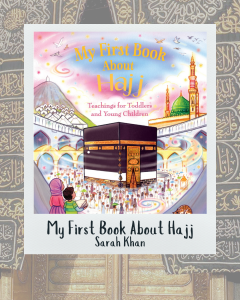
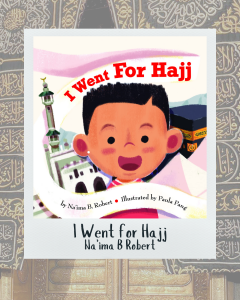
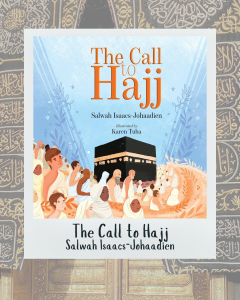 The Call to Hajj by Salwa Isaacs-Johaadien
The Call to Hajj by Salwa Isaacs-Johaadien